By Andy Shaw, Change Illinois Action Fund
My biggest takeaway as I watch and personally experience family, friends and colleagues coping with the dystopian alternate universe of the lethal pandemic is that leadership really does make a difference. A life-and death difference.
We’ve had strong and reassuring leadership from Illinois Gov. J.B. Pritzker, Chicago Mayor Lori Lightfoot and scores of other public officials, so let’s take a moment to express our gratitude.
Their tireless efforts, and the support they’re getting from staff and volunteers, saves lives, protects millions and will eventually enable us to live freely again—enjoying our lakefront, playing sports, engaging in social activities and fulfilling our civic obligations, including voting.
Yes—this crisis reminds us that voting is critically important, and having good choices when we vote so we can make smart decisions.
Nothing is more urgent than getting us to the other side of this pandemic safely. And once we get there, elected officials will be facing a tough cleanup, with budgets to repair and businesses and communities to shore up.
After that we have to give citizens the kind of competitive elections that can result in the strong representation we need and deserve in the future, well beyond our latest choices for governor and mayor.
That requires, initially, a full, accurate and complete Census for all of Illinois. Census data forms the basis for the next step—the political district mapping that establishes boundaries for the Illinois legislature.
We need an independent remapping process to replace the partisan, politically rigged gerrymandering we have now, which lets politicians in power create districts packed with likely supporters so they can discourage challengers and win one election after another. That business-as-usual status quo helps explain Illinois’ long descent into a fiscal and ethical abyss.
Talking about gerrymandering and redistricting reform in the throes of a pandemic might seem tone-deaf, but fixing a broken political system is the key to returning competition to the electoral process and equipping citizens with the power to choose strong leaders to represent us in future crises.
In Illinois, gerrymandering has silenced our voices and choices for legislative seats. In 2018, nearly half of the state legislative races had only one candidate. Factor in races won in a landslide and nearly 80 percent weren’t competitive.
We need healthy competition that produces elected leaders who are responsive and accountable to all of our diverse communities.
Under our state constitution, we only have until May 3 to put a redistricting reform amendment on our Nov. 3 ballot. The CHANGE Illinois good government reform organization and a coalition of more than 30 diverse groups statewide have been advocating for the transparent, independent redistricting mandated in the Fair Maps Amendment (SJRCA18/HJRCA41).
If a super-majority of Illinois representatives and senators don’t approve the inclusion of this ballot amendment by May 3, we’re likely doomed to suffer rigged maps and foregone elections for another 10 years.
The chances now look slim, but even after May 3 we won’t not stop. We owe it to every Illinois citizen to keep advocating for the equitable representation they deserve.
So we’ll continue the fight for redistricting that reflects all of us—not the selfish interests of political parties.
The pandemic reminds us more than ever that fair redistricting matters. That leadership matters. That even though we chose strong leaders for this crisis, we need healthy competition and good choices for every office in every election. And that requires redistricting reform. Simple as that.
This op-ed was originally published by Crain’s Chicago Business.
